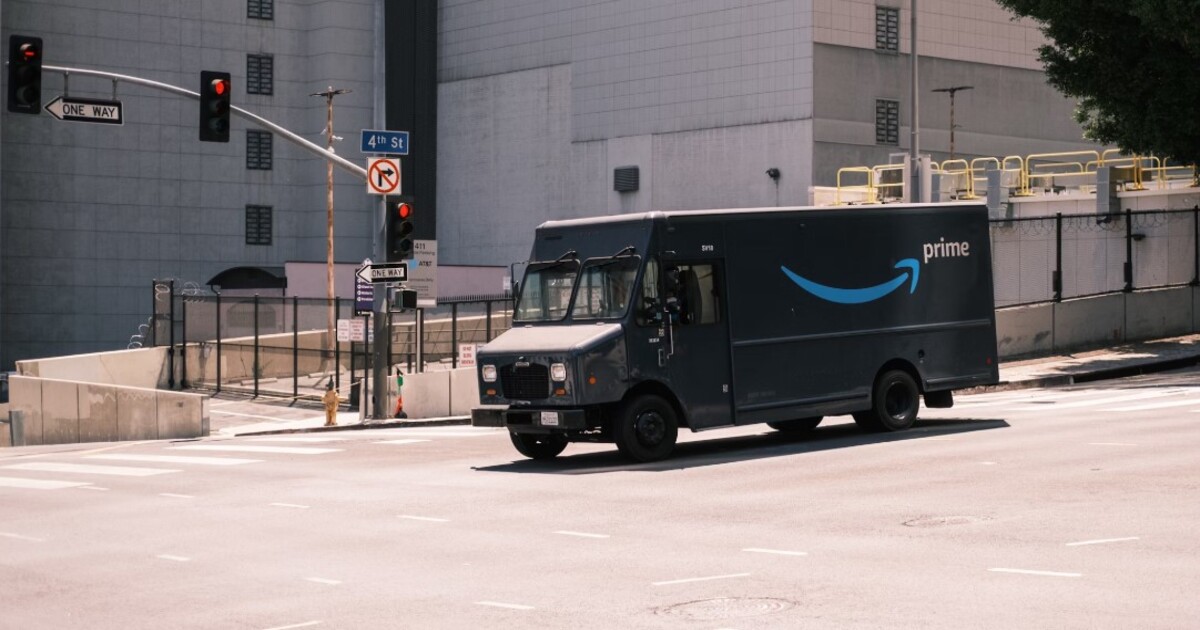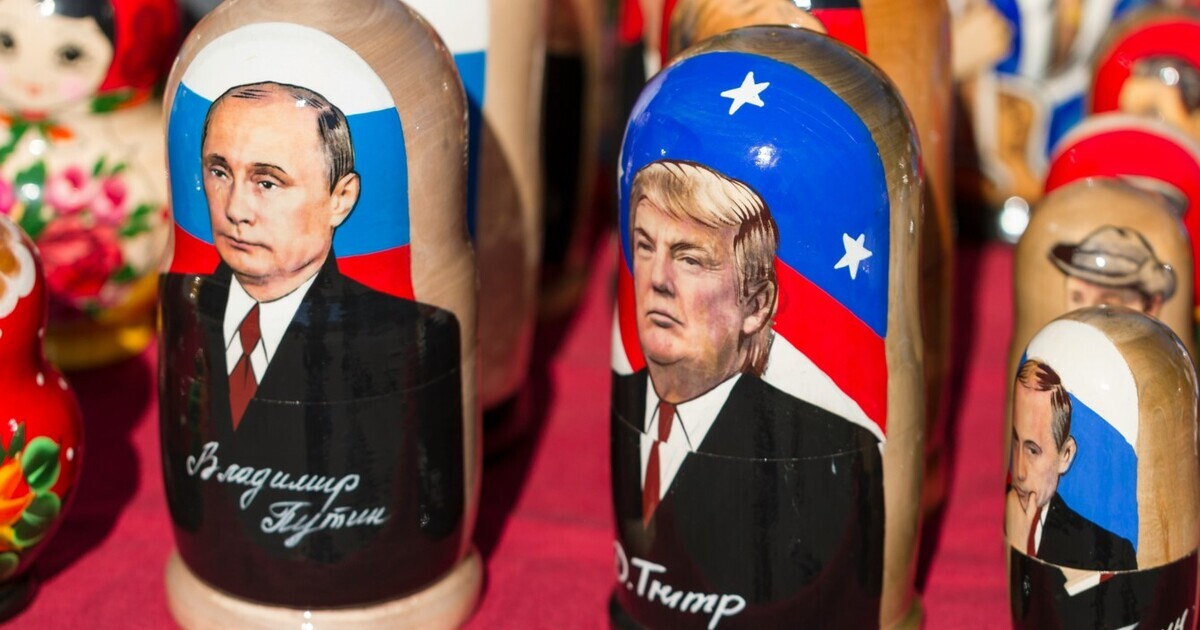What Dry January Teaches Us About Abstinence from Amazon
What if the U.S.’s rapid slide from democracy proves unstoppable through the electoral process?
March 28, 2025

A Strategic Assessment Memo (SAM) from the Global Ideas Center
You may quote from this text, provided you mention the name of the author and reference it as a new Strategic Assessment Memo (SAM) published by the Global Ideas Center in Berlin on The Globalist.
Every year, many Americans participate in what is now widely referred to as “Dry January,” a month of complete alcohol abstinence.
It is estimated that possibly 25% of all those who regularly consume alcohol are joining this exercise. As is the case with many American trends, this annual practice has spread to other countries as well.
A positive factor where the U.S. (still) leads the way
It has been found in some medical/behavioral studies that participation in Dry January leads many to a healthier relationship with alcohol by either drinking less after the end of January or even completely giving up alcohol.
Alcohol, of course, has been linked to numerous cancers and is the third-leading lifestyle-related cause for premature death (ranging after smoking and obesity).
From booze abstinence to Bezos abstinence
Taking this as an example, it is easy to draw a parallel to the addiction of online purchases, massive amounts of which are channeled through Amazon founded by now multi-billionaire, Jeff Bezos.
Bezos, also the owner of the Washington Post, has now positioned himself as a devotee of Donald Trump. After a decent start some years ago, he is now limiting the journalistic independence that was at the heart of this world-renowned newspaper.
Neutering the Washington Post
The craven eagerness of Bezos to suck up to Donald Trump, an autocrat, belies any notion that a large pool of money offers independence.
At a time when there is a high degree of political helplessness in view of the combined fecklessness, incompetence and minority status of the Democratic Party, Bezos’s decision to neuter a platform such as the Washington Post matters greatly.
The paper’s motto had been “Democracy Dies in Darkness” – now the Post is going dark as a beacon of checking a broad neo-feudalist range of billionaire power.
A heavily tilted electoral process
After all, whatever the U.S. courts may deliver with regard to actual checks and balances, the country’s rapid slide from democracy towards oppressive, oligarch totalitarianism seems unstoppable through the electoral process.
Absent a new Constitution or significant constitutional amendments, both of which are completely unlikely in the ossified institutional set-up of the United States, this reality has led to rethinking what tools might remain available to democrats (and Democrats) to stall this slide.
The “BB” tool – Boycott Bezos
Economic boycott is one such tools. Economic boycott against the billionaire class owned businesses is at the top of that list.
It is fairly easy to make your voice heard against job destroyer and nazi sympathizer, Elon Musk. Simply don’t buy a Tesla. Today, there are many EV options out there and, in fact, Tesla has long lost its first mover advantage.
Meanwhile at SpaceX, Elon Musk is successfully blowing up his own rockets soon after launch. Also, nobody needs to stay on Twitter (now called X).
Un-cornering the market
But the domain of online purchases is quite another story. Amazon has cornered that market and there is no escaping their ever-present trucks that cruise through our neighborhoods.
In many areas of the United States at least, it is also very easy to quelch your daily thirst for consumption by one-click purchases on Amazon. You can find almost anything on that digital marketplace.
The desire to fill an inner void is an important parallel between alcohol consumption and unfettered consumerism facilitated by Amazon.
Amazon as your drug dealer
In Amazon’s case, these cancers take the form of high and growing dependencies of consumption that harm the consumers and the environment. To draw yet another parallel, think of Amazon as your drug dealer. Your addiction lines its pockets.
Undoubtedly, addiction or custom engrained dependency through socialization are difficult habits to break. In the case of alcohol, the history of winemaking appears to go back as far as 8,000 years.
Drinking alcohol has become an almost unavoidable part of social interaction in most societies. But on an encouraging note, let us remember that, until very recently, not drinking alcohol was frowned upon (“He must have a problem with alcoholism,” “What is wrong with her? She is no fun” were uttered behind the backs of those who abstained. To be sure, that is still true to a degree).
The power of we
But here is where “Dry January” came in. It made it socially acceptable not to drink for a month. From a small core, the annual ritual grew to a large portion of habitual consumers of alcohol. Not drinking was normalized. And with time, the benefits of not-drinking were realized.
This has also had an impact on total alcohol consumption over time. Young adults in the United States (18-35) do not just drink far less than their peer groups decades ago, there are also more non-drinkers among them.
Online buying: A ridiculously short chapter of human history
Compared to alcohol consumption, the addiction to online buying has a ridiculously short history. Yet, an economic boycott of Amazon might rewire the brain to adopt healthier consumer behavior much more effectively and more quickly.
To give you a personal example. I participated in Dry January for the first time in 2019. It was a very positive experience, and I extended my non-drinking behavior into mid-February.
In January 2021, I repeated the exercise. I went on for longer at first because I enjoyed not having a drink, and then completely lost my interest in all alcohol.
I do not count days of being “sober” because this is not what that was about, but I know that I have not had a single drink since January 1, 2021.
From booze to Prime?
Now, I also have a subscription to Amazon Prime and use the service when I “need to.” However, 3-4 months every year, my wife and I live in Portugal. Portugal is one of the few countries that I know of without a physical Amazon presence.
So, for those 3-4 months, we buy all consumer items in local stores, some mom-and -pop shops, some larger chains. Do we miss online shopping? Not for one second!
With the growth in dominance in the United States and given the economic boycott of Amazon (a limited one week here, one week there boycott at this time), I am abstaining. And, as I did with alcohol, I abstain beyond the set time frame.
Habits are hard to break
Habits are hard to break, addictions even more difficult to undo. But when we succeed beyond a certain timeframe, depending on the “drug,” neurological changes have proven to take place. These changes can be extremely liberating and healthy.
Now, many will argue that beyond the unmatched convenience of shopping from Amazon, it is also very difficult to find items in local stores as many of those stores have closed or carry very few items.
Can local businesses do the job?
That is true to some degree, but it is not sufficient ground to stick with one’s unhealthy habits. Once again, alcohol serves as an excellent example.
As restaurants and bars experienced the decline in alcoholic beverage sales, they shifted to provide more non-alcoholic drinks to their patrons (the profit margin on drinks is very large).
Today, many restaurants and bars – and more by the day – provide an ever-increasing array of non-alcoholic, non-soda options often referred to as mocktails. This is true not just in the United States but all over the world.
A utopian idea?
A revival of small retailers growing out of the opposition and boycotting massive online businesses for political reasons may also lead to economic growth in our neighborhoods, cities and suburbs alike.
They, without a coordinated effort of diversity, equity and inclusion would represent these values through their sheer existence.
This is not a utopian idea or one that returns us to the “good old days,” but it is a very probable outcome if we extend our abstinence from most online businesses beyond the equivalent of Dry January.
Takeaways
The craven eagerness of Bezos to suck up to Donald Trump, an autocrat, belies any notion that a large pool of money offers independence.
Whatever the U.S. courts may deliver, the country’s rapid slide from democracy towards oppressive, oligarch totalitarianism seems unstoppable through the electoral process.
The ossified institutional set-up of the United States has led to rethinking what tools might remain available to democrats (and Democrats) to stall this slide.
The desire to fill an inner void is an important parallel between alcohol consumption and unfettered consumerism facilitated by Amazon.
Think of Amazon as your drug dealer. Your addiction lines its pockets.
Young adults in the United States (18-35) do not just drink far less than their peer groups decades ago, there are also more non-drinkers among them.
An economic boycott of Amazon might rewire the brain to adopt healthier consumer behavior much more effectively and more quickly.
A revival of small retailers growing out of the opposition and boycotting massive online businesses for political reasons may also lead to economic growth in our neighborhoods, cities and suburbs alike.
A Strategic Assessment Memo (SAM) from the Global Ideas Center
You may quote from this text, provided you mention the name of the author and reference it as a new Strategic Assessment Memo (SAM) published by the Global Ideas Center in Berlin on The Globalist.


